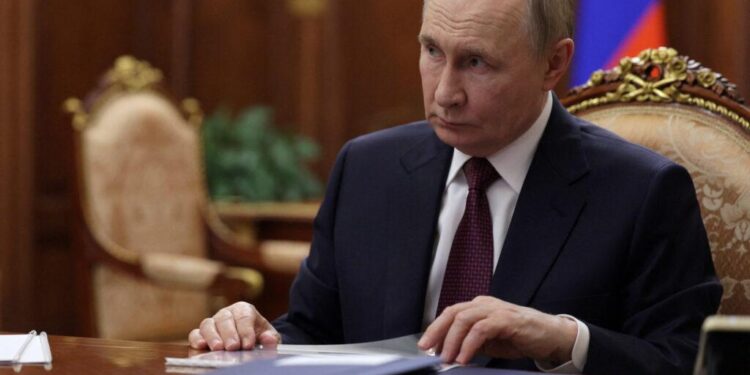Allegations have emerged that Russian intelligence operatives have been actively spying on U.S. military operations based in Germany, according to a report by The New York Times. The covert surveillance activities reportedly target key NATO installations and critical command centers, raising concerns about the security of American and allied forces stationed in Europe. This revelation underscores the ongoing espionage rivalry between Moscow and Washington amid heightened geopolitical tensions.
Russia Escalates Intelligence Operations Targeting US Forces in Germany
Recent intelligence assessments reveal a marked increase in covert Russian activities aimed at gathering sensitive information within American military installations stationed in Germany. Utilizing advanced surveillance techniques, Moscow appears to be exploiting cyber espionage, human intelligence recruitment, and signal interception to penetrate the operational security of U.S. forces. These efforts reportedly focus on monitoring troop movements, command communications, and logistical frameworks critical to NATO’s security posture in Europe.
Experts highlight several key methods identified in this escalating campaign:
- Cyber intrusions: Targeted phishing and malware attacks on military networks.
- Insider recruitment: Attempts to co-opt personnel with access to classified data.
- Electronic eavesdropping: Deployment of sophisticated listening devices near U.S. bases.
Below is a summary of suspected Russian intelligence tactics and their potential impacts on U.S. operational security:
| Method | Target | Potential Consequences |
|---|---|---|
| Phishing Campaigns | Command Emails | Compromise of communication security |
| Insider Recruitment | Military Personnel | Data leakage of operational plans |
| Signal Interception | Radio & Wireless Comms | Exposure of troop movements |
Implications for NATO Security and Transatlantic Military Coordination
The recent revelations of Russian espionage targeting US military operations in Germany have sent ripples through NATO’s security apparatus. Such covert intelligence gathering not only compromises operational secrecy but also threatens the cohesion and trust essential for effective transatlantic defense collaboration. NATO must now reassess its counterintelligence measures, particularly in host nations, to safeguard sensitive information and prevent further breaches that could undermine joint military readiness and strategic deterrence.
To address these challenges, enhanced coordination between member states’ intelligence services and military commands is imperative. This involves:
- Strengthening cybersecurity protocols to shield digital communications and command systems.
- Increasing joint training exercises focused on identifying and mitigating espionage attempts.
- Implementing stricter access controls around NATO installations and operations.
Failure to adapt could embolden adversaries and destabilize the delicate balance of power across the Euro-Atlantic region, complicating NATO’s ability to respond swiftly to evolving threats.
| Aspect | Potential Impact | Recommended Response |
|---|---|---|
| Intelligence Sharing | Reduced trust among allies | Regular vetting and transparency measures |
| Operational Security | Compromised missions | Enhanced encryption and surveillance |
| Alliance Unity | Internal tensions | Joint policy forums and crisis management drills |
Experts Urge Enhanced Counterintelligence Measures and Strategic Vigilance
In light of recent revelations about Russian intelligence activities targeting US military operations in Germany, security analysts emphasize the critical need for bolstered counterintelligence protocols. Experts highlight that the traditional measures are no longer sufficient in the face of increasingly sophisticated espionage tactics, including cyber infiltration and human intelligence networks. Heightened vigilance across allied defense installations is paramount to safeguarding sensitive operational data and maintaining strategic superiority in the region.
Key recommendations from intelligence professionals include:
- Enhanced surveillance and monitoring systems at vulnerable sites
- Regular comprehensive counterintelligence training for personnel
- Improved interagency communication channels to detect and respond to threats swiftly
- Investment in cutting-edge technologies focused on detecting espionage attempts
| Strategy | Expected Impact | Implementation Timeline |
|---|---|---|
| Cybersecurity Overhaul | Reduce data breaches by 60% | 6 Months |
| Personnel Counterintelligence Workshops | Increase threat awareness by 75% | Quarterly |
| Cross-Agency Intelligence Collaboration | Faster threat identification | Ongoing |
Key Takeaways
As investigations continue, the revelation of Russian espionage targeting U.S. military operations in Germany underscores the persistent security challenges faced by Western allies. Officials on both sides of the Atlantic have vowed to enhance counterintelligence measures to safeguard sensitive information. The unfolding developments serve as a stark reminder of the ongoing geopolitical tensions and the critical importance of vigilance in protecting defense collaborations. Further updates are expected as authorities delve deeper into the extent of the spying activities.















